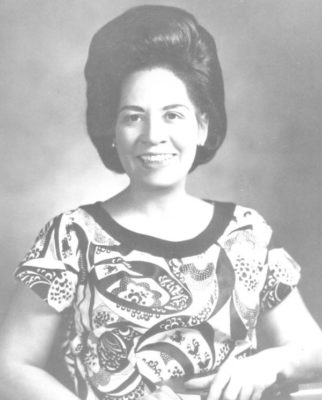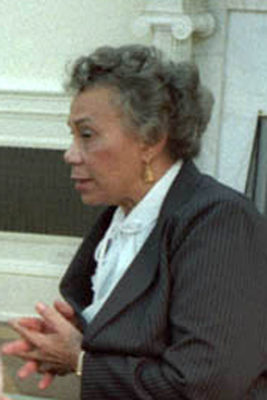[ad_1]
The Sigma Gamma Rho Sorority, Inc. was founded on November 12, 1922, with the mission to improve the lives of women in the U.S. and around the world to promote “community service, civil and social action.”
Throughout its nearly 100-year history, the sorority consisted of notable figures, including Hattie McDaniel, the first African-American to win an Academy Award, and singer Kelly Price.
The historic 2018 midterm elections saw a record number of women win political office all over the country. In honor of the sorority’s Founders Day, EBONY is highlighting noteworthy Sigma Gamma Rho members who have broken ground in politics.

Congresswoman Robin Kelly Promo Port 121713
Credit: US House Office of Photography
Rep. Robin Kelly
Kelly has been a member of the U.S. House of Representatives since 2013 and represents Illinois’ 2nd congressional district.
She was re-elected on Nov. 7, garnering over 80 percent of the vote against her Republican challenger.
“Sigma Gamma Rho played an integral role in the Civil Rights Movement as members fought to overturn Jim Crow laws and advance women’s equality,” said Kelly on the House floor in celebration of the sorority’s 92-year anniversary in 2014. “I’m honored to be a part of this legacy, and wish many more years of success to my sisters in Sigma Gamma Rho.”

Gwen Cherry
Source: Florida Memory Project
Gwendolyn “Gwen” Sawyer Cherry
Cherry made history in 1970 becoming the first African-American woman to serve as a state legislature in Florida.
Prior to serving as a lawmaker, she was the first Black woman to practice law in Dade County.
During her tenure, she introduced the Equal Rights Amendment and Martin Luther King Jr. Day as a state holiday, per the Gwen S. Cherry Black Women Lawyers Association.
Cherry served four terms as a congresswoman before her untimely death in 1979.

Georgia Davis Powers accepts an honorary token from Dr. Sonja Feist-Price who thanks her for coming to speak at the University of Kentucky as part of the AASRP Race Dialogues, co-sponsored by Randolph Hollingsworth’s class, “Sisters of the Struggle: History of Women in Kentucky during the Civil Rights Era, 1920s – 1970s.”
Source: Attribution-ShareAlike 3.0 Unported (CC BY-SA 3.0)
Georgia Davis Powers
Powers made history by becoming the first person of color and the first woman elected to the Kentucky state senate. She served 21 years in office.
During her time in office, Powers introduced a statewide fair housing law that prohibited discrimination. Her efforts made Kentucky the first state in the South that banned discrimination in the workplace and segregation in public spaces. She also worked toward providing better education opportunities for the physically and mentally disabled.
Powers became an honorary Sigma Gamma Rho member in 1993.

Dame Mary Eugenia Charles
Credit: U.S. Gov’t
Dame Mary Eugenia Charles
Charles served as the prime minister of Dominica from 1980 to 1995, the first woman in the country’s history to hold the position.
She received her bachelor’s degree from the University of Toronto and a law degree from the London School of Economic and Political Science, then went back to Dominica to practice law making her the country’s first female lawyer.
As prime minister, Charles supported measures intended to help Dominica economically and supported the U.S.-led invasion of Grenada in 1983.
In 1991, she was knighted by Queen Elizabeth II for her work as a lawyer, politician and journalist, according to The Caribbean Current.

Lindy Boggs
Source: U.S. Gov’t
Lindy Boggs
Boggs made history when she became the first woman from Louisiana elected to Congress and served on the U.S. House of Representatives from 1973 to 1991.
She believed that the most pressing issues for women were economic and not social in nature.
“Almost all women’s issues are economic issues, a stunning idea to those persons who want to hear about ’Great Women’s Issues’ and expect us to be preoccupied with the ERA or abortion or sexual harassment,” she said in her biography, Washington Through a Purple Veil: Memoirs of a Southern Woman. “The major issues of importance that I’ve worked for are economic ones: equal rights for women in business, banking, and home ownership; the promotion of women in the workplace; better jobs in government contracts; and equal opportunities for higher education, especially in science and medicine. Women vote their pocketbooks…it boils down to that.”
In 1976, Boggs made history again when she became the first woman to chair the Democratic National Convention.
[ad_2]
Source link

